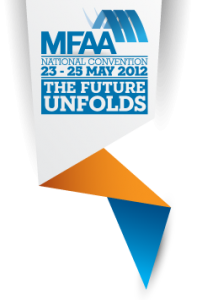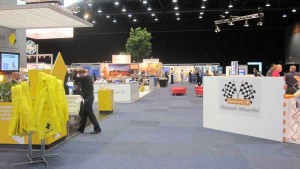And what a boy he is. Rachelle Gregory-Marshall, an extraordinary woman, gave birth this week to a special baby boy. I know most parents and family members think their newborn is special and different from the rest; some new parents act like their newborn is the chosen one, carrying on as if it’s the first to ever be born. It happens 133 million times a year, which works out to 247 births a minute worldwide. By the time you finish reading this blog, another child has entered the world wondering, where the hell am I? But of those 133 million yearly births, a few are different – like Rachelle and the father, Ian’s, who’s primary responsibility is now to not say or do anything stupid, baby boy. Look, I’m not biased because they’re family. You want proof this child is different? Baby Owen came into the world weighing in at 10 ½ pounds!
 Let me kill the suspense for you, it was cesarean section. Funny how a double digit number, like 10 ½ pounds, makes a mother to be say “cut me open and pull him out”. That’s totally understandable. Yet, the natural delivery of an eight or nine pound baby is considered okay and normal. You know who considers it okay and normal? Men! If men had to push an eight or nine pound baby out, civilization would have ceased to exist thousands of years ago. We’re just not tough enough to endure something like that. The father’s job throughout the delivery is to be the coach and offer words of encouragement like, “I’m here for you…remember to breath…I agree I’m an &%@hole and this is all my fault.”
Let me kill the suspense for you, it was cesarean section. Funny how a double digit number, like 10 ½ pounds, makes a mother to be say “cut me open and pull him out”. That’s totally understandable. Yet, the natural delivery of an eight or nine pound baby is considered okay and normal. You know who considers it okay and normal? Men! If men had to push an eight or nine pound baby out, civilization would have ceased to exist thousands of years ago. We’re just not tough enough to endure something like that. The father’s job throughout the delivery is to be the coach and offer words of encouragement like, “I’m here for you…remember to breath…I agree I’m an &%@hole and this is all my fault.”
But once the baby arrives, all is forgotten; the focus is now on the baby. The parents stare lovingly at their baby and say, “Jesus Christ, he’s 10 ½ pounds”. The first crisis these new parents faced was the realization the newborn clothes they purchased didn’t fit. Not to worry, that’s where I helped. On my first visit to the hospital I brought one of my old suits with me. I think baby Owen is about a 28 waist, so we’ll have put a few extra holes in his belt. Baby seat? Nah, just place him in the back seat and put the regular seatbelt on him. Owen’s parents may want to put a pillow under his bum so he can see clearly out the window. This boy is big. You know he’s big when the head nurse wheels Rachelle into the nursery for the first time and says to the staff, “Hey everyone, this is Bubba’s mom”. The nurses at the hospital have dubbed baby Owen, Bubba. Trust me, that’s going to stick.
I don’t know much about babies but I think all newborn babies look like Winston Churchill. Sure, the odd ones look like an alien but, for the most part, they bare a striking resemblance to Churchill. Bubba Owen is no different. The only difference is that Rachelle gave birth to a life-size version of Churchill.
To the proud parents, thank you for this wonderful gift and I can’t wait for Bubba Owen to otter his first words, “We shall never surrender”.
Until next time
Cheers
Read More Add a Comment
I can’t even to begin to express my gratitude and thanks to all those who welcomed me in Australia. From Phil Naylor, CEO MFAA, Steve Kane, National President MFAA, the MFAA Board, and all the staff, thank you for your gracious hospitality. The MFAA put on a fantastic conference, and it gave me the opportunity to gain some insight into the Australian market, and to meet some wonderful people.
People like Bridget Sakr, Chief Commercial Officer Genworth Fininacial. Bridget invited me to attend a couple of round table discussions with some Genworth’s supporters. It was an interesting exercise and validated that all Genworth employees share the same characteristics. Customer relations, Best in Class. People like John Flavell, General Manager Distribution, NAB (National Australian Bank) Broker. John invited me to attend the NAB broker appreciation dinner. This dinner was for some of the biggest supporters of NAB. It gave me a great opportunity to ask questions of the best of the best. Great food, great wine, a captive study group for me, can’t ask for much more. People like Annie Lim, who I sat beside at the conference gala dinner. Annie is the Director of the Mortgage and Finance Association of Singapore! A fledgling association but it was a great reminder to me look constantly beyond our own backyard to learn a thing or two.
To all my new mates in Australia, I would like to extend an invitation to you to join us in Vancouver for Mortgage Forum 2012. Our national conference is from November 25-27. No worries, it doesn’t conflict with the Melbourne Cup. I can assure it would be a great experience, an opportunity to network, and maybe learn the odd thing from us Canucks.
Until next time
Cheers
Read More Add a CommentThe one significant difference between the Australian and Canadian broker market is broker market share. CMHC just reported that in Canada, broker market share is 27%. In Australia, it’s 42%.
 Attending the MFAA Conference has accorded me the opportunity to garner insight into the Australian broker market. The stakeholders in Australia are as passionate and committed to their industry as we are in Canada. I am struck by the market similarities we share, as it relates to the overall economy, and the broker market specifically. One similarity we share is negative press. The issues are different but the press in Australia is as committed to fear mongering as it is in Canada. There’s no talk of too much consumer debt here, yet their average mortgage balances are no different than in Canada. Here the primary focus is all that could go wrong beyond Australia’s boarder, which in turn will lead to the destruction of the Australian economy.
Attending the MFAA Conference has accorded me the opportunity to garner insight into the Australian broker market. The stakeholders in Australia are as passionate and committed to their industry as we are in Canada. I am struck by the market similarities we share, as it relates to the overall economy, and the broker market specifically. One similarity we share is negative press. The issues are different but the press in Australia is as committed to fear mongering as it is in Canada. There’s no talk of too much consumer debt here, yet their average mortgage balances are no different than in Canada. Here the primary focus is all that could go wrong beyond Australia’s boarder, which in turn will lead to the destruction of the Australian economy.
Europe’s an issue; however, the press in Australia is casting its worrisome gaze in China’s direction, which on the surface is laughable. China is Australia’s largest trading partner. The Aussies distanced themselves from the U.S. market years ago. They decided to hook their wagon to an emerging market like China, and fortuitously decided to distance themselves from the world’s largest sub-merging economy, the US. Ah, but gory headlines are needed, so the focus is on China’s slowing economy. It appears that 7 1/2% growth is no reason to celebrate or feel comfortable. The talk is will China have a soft or hard landing, which ultimately will impact the Australian economy. Can you imagine, if the US was forecasting 7 1/2% growth, and what that would mean for the Canadian economy? Yet somehow 7 1/2 % growth in China could have a negative impact in Australia. Just wondering what part of 71/2 % growth produces a hard landing? I guess the old saying about the press is no different in Australia – “if it bleeds…it leads”.
The one significant difference between the Australian and Canadian broker market is broker market share. CMHC just reported that in Canada, broker market share is 27%. In Australia, it’s 42%. I’ve asked every Aussie I’ve spoken to at the conference the following: “how did brokers grow their market share to 42%”? As I suspected, there was no one definitive answer, but there were some underlying themes.

It appears that the psyche of the average Aussie plays a part in those market share numbers. Aussies have a deep distrust of the banks and animosity towards their profits. Many Aussies believe the higher cost of borrowing has contributed to those bank profits. Yet, banks in Australia have a 90% market share of all broker business. So that distrust and anger has not resulted in less business for the banks. In large part that is due to the lack of competition, but it appears also that consumers look to brokers to provide them with the best of the least tasteful option. Interesting, to say the least.
Another critical factor which contributes to the success of the broker channel is the investment that the large firms make towords advertising. I had the pleasure to speak to Michael Russell, CEO of Mortgage Choice in Australia, about this very subject. Without getting into specifics, Mortgage Choice invests multiple millions of dollars in advertising. Their individual franchises advertise on their own, which collectively exceeds the dollar amount committed to advertising by Mo rtgage Choice corporately. Throw in Aussie Hone Loans, and number of other firms which advertise, and it’s easy to see why an Aussie consumers would chose a mortgage broker. Some of the larger broker firms in Australia spend more on advertising than the banks do, as it relates to mortgages. The messaging is choice, service, quality of broker, trust and yes, pricing. Since the GFC (Global Financial Crisis), Aussies are far more focused on price. However, price alone is not enough. The Aussie borrower is looking for utility and competency.
There’s plenty to learn from the Australian broker experience. Volumes speak, like $90 billion a year in origination. I’m looking at a rate sheet from Westpac, one of the major banks in Australia, and their 5 year fixed rate is 6.99%, and the good news is their ARM pricing has been reduced to 7.09%. You may be surprised to learn that 60% of all mortgages in Australia is ARM. The most recent MFAA Home Finance Index, which measures consumer sentiment, indicates that the percentage of consumers who would chose a broker first, as compared to those who would chose a bank first, is almost identical. We share many similarities with the Aussie broker market, yet some of the differences are profound.
Until next time
Cheers
Read More Add a CommentFor God’s sake they should get a couple of thousand tugboats, some good strong rope, and tow this island somewhere closer to civilization.
In the name of all things holy it’s far. For God’s sake they should get a couple of thousand tugboats, some good strong rope, and tow this island somewhere closer to civilization. For transparency I was fortunate to be able to sit at front of the bus for the flight over. That gave me the opportunity to stretch out and get some sleep, some seven hours’ worth. It was the other fifteen hours that I had to fill, and what I learned is that to pass that amount of time away you need a distraction. Like food! The flight attendants try to feed you at every moment. “Mr. Bozic, is there anything I can get you?” Let me see, it’s been 22 minutes since my last meal, “sure, how about some dim sum and 4 bags of chips”. I’m not kidding.
The real estate market is red hot here – This according to the cab driver who drove me to my hotel. Property values are increasing by 10% annually, and he owns multiple properties. Hmm, interesting. I was afraid to ask him if he was a part-time mortgage broker. Let me rephrase that, I was afraid of the answer. I have this illusion that the Australian mortgage broker industry wouldn’t allow that.
As soon as I unpacked at the hotel in Melbourne, I went for a walkabout. I went out and picked up two newspapers, which I planned to read from front to back, so that I can get a flavour of what’s current and happening in Australia. On the front page of The Australian and The Daily Telegraph was this number one story: the original Wiggles are no more. Yes, Australia’s jewel and gift to children’s programing is going through a radical makeover.  Three original members are leaving for personal reasons; the usual, wanting to be closer to family etc. Yeah right, one day the truth will come out and we’ll all learn that there’s a Yoko Ono story in there somewhere. One of the replacements is, are you sitting down, a Wigglette. Only 22 years of age, Emma Watkins is the new face and the first female member of the Wiggles. If you’re wondering she will dawn the yellow shirt.
Three original members are leaving for personal reasons; the usual, wanting to be closer to family etc. Yeah right, one day the truth will come out and we’ll all learn that there’s a Yoko Ono story in there somewhere. One of the replacements is, are you sitting down, a Wigglette. Only 22 years of age, Emma Watkins is the new face and the first female member of the Wiggles. If you’re wondering she will dawn the yellow shirt.
Australian stock market has tanked. It’s lost all of its gains in 2012. The European debt crisis dominates the business section but the major banks here feel they’re insulated because they have been preparing for the inevitable for some time now. Australia biggest trading partner is China. As goes the Chinese economy so goes Australia’s.
The best five year fixed rate I could find is 6.5%. Gulp!
Melbourne is a lot like Vancouver, from architecture to the overall feel. Melbourne hates all things Sydney; just like Vancouver and Toronto.
The learning continues. The bastards drive on the wrong side of the road. I was nearly killed twice jaywalking.
Revolving doors at the hotel turn in the opposite direction. Smacked my head a few times – D’OH!
Clearly I speak funny. I was in Melbourne for less than twelve hours and two people asked me the following: “so you here on vacation, mate?”
The most important thing I’ve learned so far is that there’s no awkwardness in meeting family for the first time. It was odd talking to my cousin on the phone, making plans to meet at the hotel and having to describe what I was wearing so he could pick me out of the crowd. He found me, and I got a chance to spend some time with him, his beautiful daughter, his brother and his mom, my aunt. They were extremely gracious and they treated me like family. It doesn’t matter what happens from here – that will be my lasting memory of this trip.
Until next time
Cheers
Read More Add a CommentBy the time this blog is posted, I’ll be somewhere over the Pacific Ocean heading towards Sydney, Australia. My final destination is Adelaide, Australia. The purpose of the journey is to attend the Mortgage & Finance Association of Australia National Conference. It’s a long, a very long way, to go to attend a conference. By the time you read this blog, I will be well into my 22 hour flight and, I suspect, I will be going a little stir crazy. I’ve traveled a number of times to Europe, but an 8 hour flight to Europe is like a walk around the block compared to “going down under.” It’s a trip I always wanted to make, but I always found a reason to put it off. Must be the thought of been cramped in a tin can for 22 hours. But now, there was definitive time and reason to go. The MFAA is Australia’s equivalent of CAAMP. As much as I’m delighted to remove an item from my bucket list, going to Australia, the primary purpose of the visit is to represent CAAMP, and to go for my own personal development.
Canada and Australia are similar in many ways; specifically as it relates to the mortgage industry, an oligopoly exists in both countries, but the big difference is the disappearance of mono-lines in Australia. That was a result of the credit crisis of 2008, or as the Aussie’s like to say, the GSS (Global Shit Storm). The mortgage industry in Australia changed significantly post-2008. As mentioned, mono-lines became a footnote in the annals of the mortgage lending history in Australia. Given limited competition, broker commissions where significantly reduced. The four major banks in Australia now control 90% of the broker market share. The banks imposed proficiency exams on brokers to do business with them, at a cost of $750 to write the exam. The major banks took an equity position in some of the larger broker house’s in Australia, and they exercise their influence and control by way of board seats. Yet, for all the challenges the Australian broker market has faced since the GSS, they still control a 40% market share. That’s what I find fascinating. The Canadian broker market came out relatively unscathed after 2008, and yet broker market share in Canada is not growing. The data would suggest that broker market share in Canada is actually contracting; so what is it about Australian broker market that enables them not only maintain their market share but actually grow it? That’s going to be the first question I ask of any stakeholder in Australia. I hope to garner some insights and to see if there’s some practical application to our market, given examples from Australia.
What I’m really looking forward to is talking to lenders and brokers who fully embrace a trailer fee model. Brokers and lenders in Australia are vested and fully committed to this model. So what I hope to gleam is, how did they get there? I believe the trailer fee model is now accepted by the broker community in Canada. It’s no longer viewed as the boogieman or the great unknown. In large part this is due to Merix’s commitment towards this compensation model, and it pioneering of the trailer fee model. Many lenders talked about in the past but Merix actually did it. I commend all the broker lenders in Canada that have created a hybrid of the Merix model. Lenders in Canada can call them renewal fees if they like but the fact is prior to Merix, lenders were not paying on renewal. My hope is that every lender jumps on board and helps to create future value for mortgage brokers in Canada. Who knows, maybe one day Aussie brokers and lenders will ask us, how did you do it?
Until next time
Cheers
Your request has been sent.